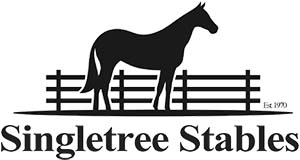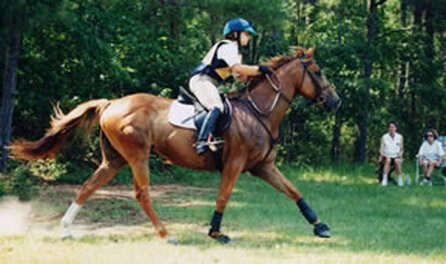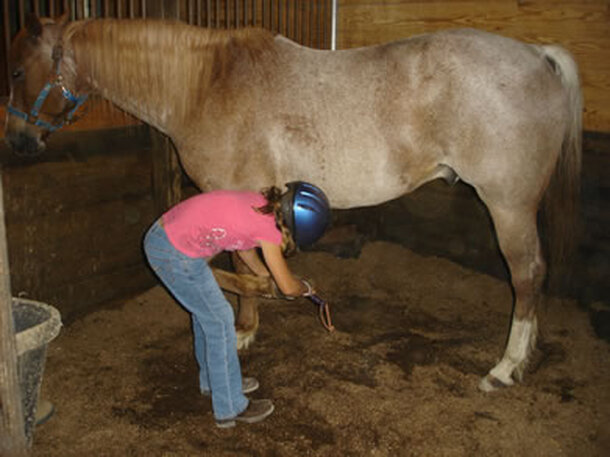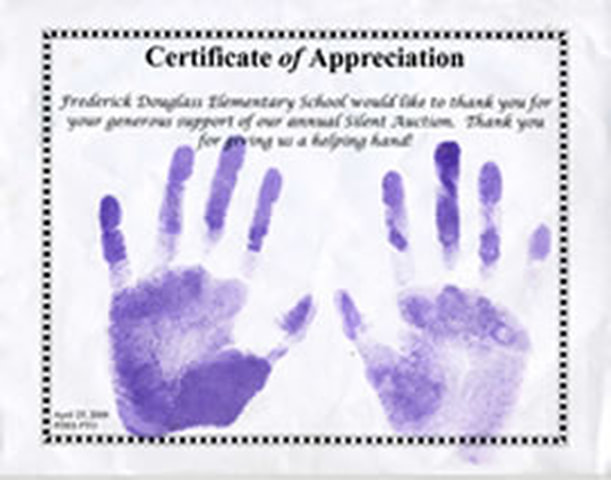|
WHAT HORSES AND RIDING CAN DO FOR THE YOUTH OF TODAY
1) There are many valuable and important lessons to be learned by having our youth participate in an equine riding program. Cross Country 2) We, at Singletree Stables Riding School, firmly believe that horses and riding are good for the youth; physically, intellectually, emotionally and spiritually. 3) Good horses and good instructors help make good riders, good horsemen, and good human beings. 4) Riding is a physical activity which improves fitness, strength, flexibility and endurance. Riding also requires skill, and balance and coordination. 5) Riding gets the youth up and active and out in all kinds of weather, year round. Once upon a time, this wasn’t anything out of the ordinary, but nowadays, when so many schools are eliminating physical exercise from the curriculum, riding maybe the only way for some youth to tap into the benefits of physical activity and fitness. For horses and for humans, physical activity is essentially for good health. Restricted movement and confinement aren’t natural or healthy. Neither horses nor humans can stay sane and sensible when deprived of movement, circulation and oxygen to the brain. In terms of posture and breathing alone, riding makes an enormous difference that is noticeable at school and at home. 6) Riding teaches the youth in a way that classroom lectures cannot. Through interacting with horses and watching good role models, riders learn much more than riding skills. They learn to be thoughtful and gentle, compassionate and empathetic. They learn to be patient. They also learn courage and determination. 7) Riders learn to take responsibility for their own actions and for the consequences of those actions. This is essential training for school, for college, for a career and for life as an adult and parent and as an all around useful citizen. 8) Horsemanship isn’t limited to horses – the attitudes and habits of a horseman can be applied throughout life. Learning to care for horses properly means learning how to take responsibility for another being that is completely dependent on them for its care. It’s an ideal education for future parents. Cleaning Horse 9) Grooming horses, cleaning stalls, scrubbing water buckets and cleaning tack are chores that must be done. Whether the ride was enjoyable or frustrating, when it’s over, the horse’s needs must be met. Cooling the horse down, giving it water, grooming it, being sure it has a clean stall or paddock in which to relax, feeding it, and only then taking time to look after their own needs – these are the habits of a horseman. They are also the habits of good parents – and of young riders who are learning to be horsemen, and who will grow up to be compassionate, empathetic, careful, caring parents who put their children first, see to the children’s needs before getting their own drink, dinner, shower or nap, and who won’t back away from any diaper changes or from sick and fretful offspring. 10) Riding and horsemanship don’t distract youths from their studies – they help them study more wisely and much more effectively. Riding involves discipline and self discipline. Attentive riders learn to appreciate the value of systematic, progressive training. They learn to apply themselves to their studies and they learn how to stay focused, work hard – and smart. 11) Riders learn to understand the importance of process. In riding, you can’t copy someone else’s answers, because it is not just a matter of getting the right answer, but getting the answer in the right way. 12) With the help of good teachers (human and equine), they learn about themselves, and they learn how they learn best – and what sort of teaching approach they find most useful and effective. They also learn some very practical social skills, such as how to put their own egos aside, how to look for causes, reasons, and solutions, and how to think instead of just reacting with a burst of temper. These skills will benefit the riders forever, even if they give up riding. 13) Riding lessons provide useful reality checks. Riders learn to be attentive and observant. They learn the importance of having and using safety equipment and safety practices, and they learn that no matter how much they may adore their horses, the horses are still horses and are always capable of reacting to surprises or pain with a startle, rear or kick. 14) Horses and riding can provide youths with self-esteem. Gaining competence as riders makes them special and gives them a type of confidence that simply cannot be matched in any other sport, because they’ve not only acquired skills, they’ve built a relationship. 15) The youth would develop balance and core strength – not just physical strength, but mental, emotional, and moral strength as well. Good riding and horsemanship both require consideration for others, and in addition to sympathy and empathy, youths would learn that there are no shortcuts to doing something right. 16) “It builds character” is usually said about things that are unpleasant or painful – things we don’t enjoy doing and don’t want to do. Riding is a pleasant and enjoyable way to build character. Respect, compassion, empathy, responsibility, honesty, integrity, focus and follow-through – who wouldn’t want their children to have and live these values. 17) There are a lot of worried, non-horsey parents out there, with youths fascinated by horses and desperate to learn to ride. Let’s do whatever we can to reach the parents! If we can show them that the values and qualities they hope to instill in their children are precisely those values and qualities that good riding lessons will introduce and reinforce, we may be able to help them understand why horses and riding have so much to offer. |



